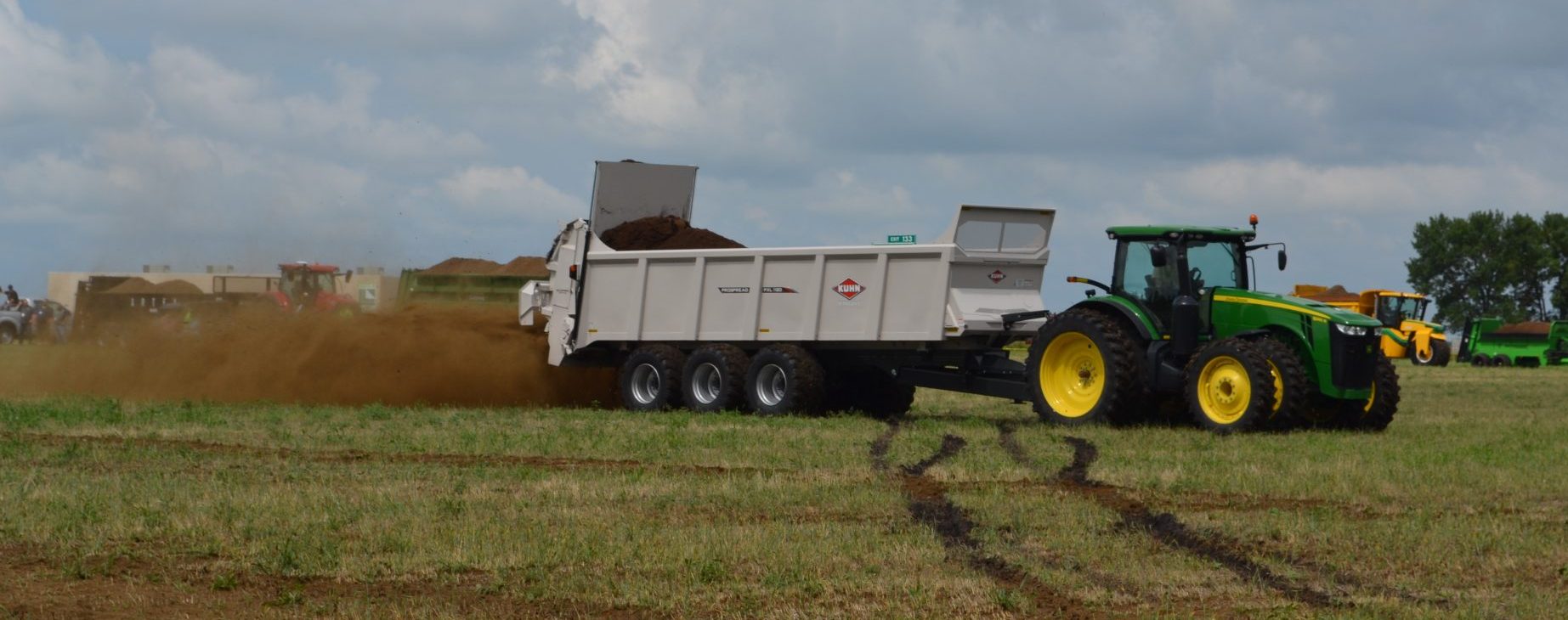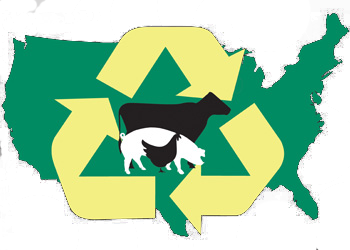![]() Waste to Worth home | More proceedings….
Waste to Worth home | More proceedings….
Note: This topic was included in a poster at the 2015 Waste to Worth conference and was part of a pre-conference webinar on gypsum bedding & practical considerations for manure handlers.
Abstract
Gypsum products created from construction industry waste streams provide low-input cost bedding. Some dairies report decreased somatic cell counts in milk with its use.
Recently, several incidents involving human and livestock death or injury have highlighted the possible creation of dangerous gases at farms using gypsum bedding. Human lives were lost at two separate events. In a third incident, a 2-year old and 4-year old were found unconscious adjacent to a manure storage where gypsum was present. In the European Union (EU) several agencies have forbade the use of gypsum as bedding based on losses of livestock as well as previous policies that restricted gypsum from landfill disposal.
Gypsum is a common term for hydrated calcium sulfate (CaSO4¬-2H2O). It is suspected that under the right manure storage conditions anaerobic bacteria convert the sulfur (S) in gypsum to hydrogen sulfide (H2S), a gas that can be deadly. Movement such as agitation of manure can lead to large H2S fluxes and localized dangerous levels of the gas.
While this is concerning, there remain many farms that utilize gypsum without incident. Data on this subject are lacking.
The goal of this symposium presentation is to update attendees on this ‘current event’ in manure management. Some laboratory studies are expected to complete between the time of this abstract composition (October 2012) and the symposium date. A general outline of the presentation includes:
- Recap of cases leading to concern with this product
- Policies of the EU and US
- Industrial standards for dangerous H2S levels (OSHA and other)
- Biological and chemical avenues of H2S production
- Research review of gypsum use in manure
- Recommendations for safety, management and education.
Why Are We Concerned About Gypsum Bedding on Dairies?
The goal of this ‘current event’ presentation is to increase national awareness of several deaths and severe injuries that have occurred recently in the Mid-Atlantic area involving manure gases. Several dairies where incidents occurred use gypsum from recycled drywall as low cost bedding material. There is great concern that gypsum increases dangerous hydrogen sulfide emissions from manure storages at these farms.
What Did We Do?
Recent deaths and severe injuries near manure storages highlight the importance of understanding and outreach needs. An overview of incidents involving manure gases at dairies that bed with gypsum will be given. Concerns and risks will be discussed, followed by recommendations on how to prevent incidents.
What Have We Learned?
In a true first step to determine gas productions associated with gypsum in manure preliminary bench-top scaled comparisons of manures with and without gypsum are ongoing in Pennsylvania and Wisconsin. A status update on progress on this early work will be discussed.
Future Plans
Literature and base knowledge on this subject are lacking. More work is needed to assess the actual risk to workers around manure storages where gypsum is present. There are countless factors that can contribute to gas production from manure storages. Identification of key factors that may lead to production of hydrogen sulfide when gypsum is present is needed. Further outreach to manure handling industries is warranted.
Authors
Robert Meinen – Senior Extension Associate, Penn State University Dept. of Animal Science rjm134@psu.edu
Davis Hill – Senior Extension Associate, Agricultural Safety and Health, Penn State University Dept. of Agricultural and Biological Engineering.
Rebecca Larson – Assistant Professor: Bio-waste, University of Wisconsin Dept. of Biological Systems Engineering.
Asli Ozkaynak – Post Doc Researcher, University of Wisconsin Dept. of Biological Systems Engineering.
Dennis Murphy – Distinguished Professor, Agricultural Safety and Health, Penn State University Dept. of Agricultural and Biological Engineering.
Eileen Fabian Wheeler – Professor, Animal Welfare and Agricultural Emissions, Penn State University Dept. of Agricultural and Biological Engineering.
Robin Brandt – Lecturer, Land-based treatment/recycling systems, Penn State University Dept. of Agricultural and Biological Engineering.
Herschel Elliot – Professor, Fate and Control of Pollutants in Soils and Water, Penn State University Dept. of Agricultural and Biological Engineering
The authors are solely responsible for the content of these proceedings. The technical information does not necessarily reflect the official position of the sponsoring agencies or institutions represented by planning committee members, and inclusion and distribution herein does not constitute an endorsement of views expressed by the same. Printed materials included herein are not refereed publications. Citations should appear as follows. EXAMPLE: Authors. 2013. Title of presentation. Waste to Worth: Spreading Science and Solutions. Denver, CO. April 1-5, 2013. URL of this page. Accessed on: today’s date.

